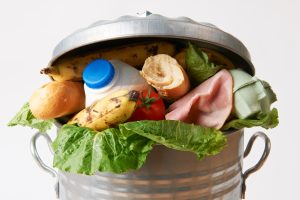CAST to Release Comprehensive Paper on FIFRA and ESA at the CropLife & RISE Regulatory Conference

Humans have always wasted food, but the scale of the problem today is unprecedented in history. A movement of food waste reduction, recovery, and recycling has rapidly spread around the world
recently due to a FAO report that sparked the drive. The research showed that about one-third of the food produced worldwide for human consumption is lost or wasted—resulting in enough food to feed more than a billion people. Without a doubt, sustainably feeding the world will require the combination of many solutions, and wasting less to feed more represents an opportunity of significant magnitude. Cutting down food loss and waste (FLW) could be a relatively low-hanging fruit to meet the growing demand for food while simultaneously addressing food security and sustainability.
Led by Task Force Chair Zhengxia Dou, the authors of this issue paper provide a critical overview of the United States’ food loss and waste through an objective, balanced, and data-proven approach. Research on this specific topic presented a few challenges as no single comprehensive estimate of FLW data exists in the United States; however, work completed in this area provides important information and insights helpful to understanding the problems, challenges, and directions for significant solutions.
This issue paper addresses the subject by examining these key topics:
Looking ahead, feeding 9 billion people cannot be addressed by pushing for greater production alone; sustainable consumption and decreasing food waste must be incorporated into the food security and sustainability agenda. Wasting less to feed more offers multifaceted benefits of combating hunger, enhancing food availability, improving resilience of food systems, and strengthening resource and environmental performance.
The authors conclude the following: “Substantially decreasing food waste is attainable. Opportunities exist throughout the supply chain. Meaningful progress can be made household to household, business to business, and step by step, as long as people are willing to take actions to change wasteful lifestyles and society enables such change with necessary support in terms of policy, research, innovation, and technology development.”
This CAST Issue Paper (IP 62) and its companion Ag quickCAST are available online at the CAST website, along with many of CAST’s other scientific publications. CAST Issue Papers, Commentaries, and Ag quickCASTs are FREE.
Zhenqxia Dou-Phone: 610-925-6242; Email: douzheng@vet.upenn.edu
Kent Schescke-Phone: 515-292-2125, ext. 231; Email: kschescke@cast-science.org
Zhenqxia Dou (Chair), University of Pennsylvania
Chris Cochran, ReFED
Steven M. Finn, LeanPath
David Galligan, University of Pennsylvania
Nora Goldstein, BioCycle
Tom O’Donnell, Cabrini University
Your donation to CAST helps support the CAST mission of communicating science to meet the challenge of producing enough food, fiber and fuel for a growing population. Every gift, no matter the size, is appreciated.